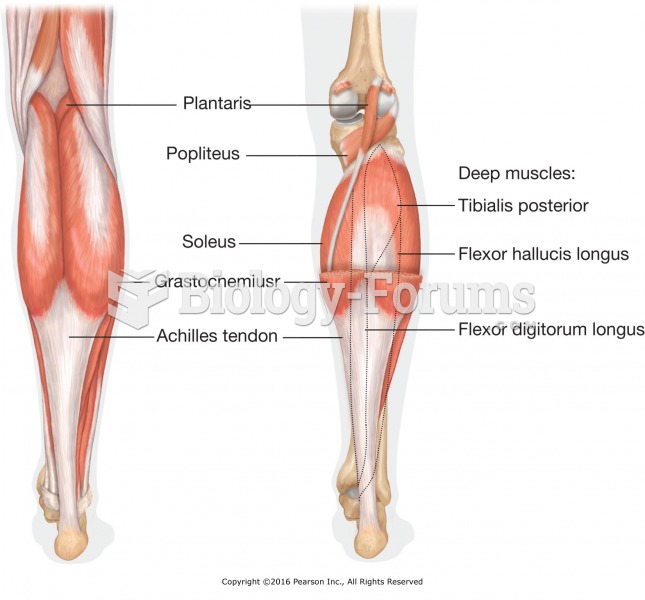This topic contains a solution. Click here to go to the answer
|
|
|
Did you know?
In 1864, the first barbiturate (barbituric acid) was synthesized.
Did you know?
In women, pharmacodynamic differences include increased sensitivity to (and increased effectiveness of) beta-blockers, opioids, selective serotonin reuptake inhibitors, and typical antipsychotics.
Did you know?
Illness; diuretics; laxative abuse; hot weather; exercise; sweating; caffeine; alcoholic beverages; starvation diets; inadequate carbohydrate consumption; and diets high in protein, salt, or fiber can cause people to become dehydrated.
Did you know?
In 2010, opiate painkllers, such as morphine, OxyContin®, and Vicodin®, were tied to almost 60% of drug overdose deaths.
Did you know?
The longest a person has survived after a heart transplant is 24 years.
 Results from sequential study of two cohorts tested at three ages and at three different points in t
Results from sequential study of two cohorts tested at three ages and at three different points in t
 (a) Blue arrows (right side): External components of the innate immune system: human body with skin, ...
(a) Blue arrows (right side): External components of the innate immune system: human body with skin, ...





